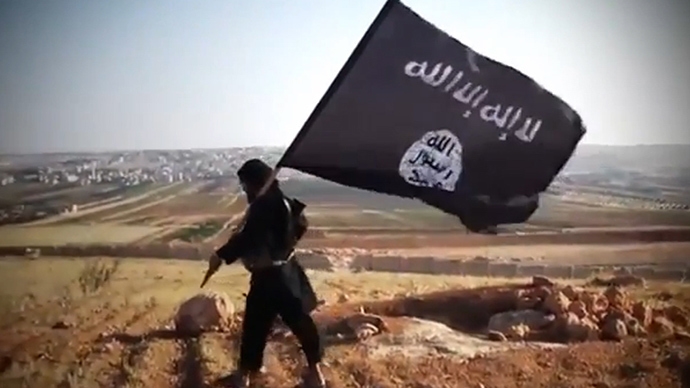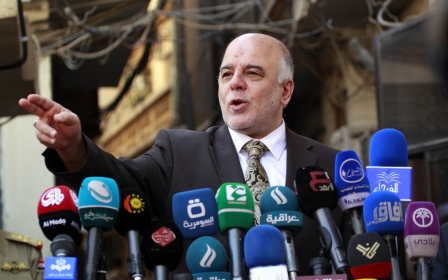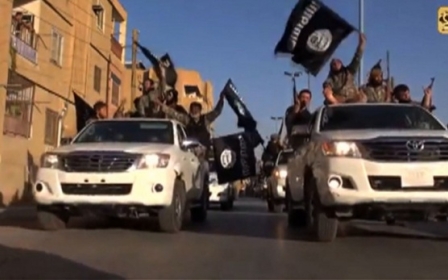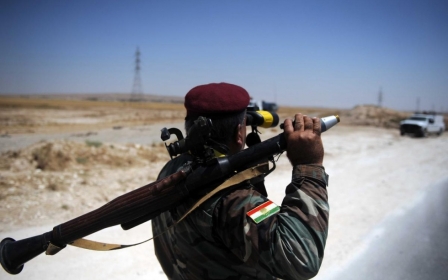Kurds increase oil production despite Islamic State threat

LONDON - In early August, attacks on the oil-rich Kurdistan region of Iraq by the Islamic State group (IS) led major oil companies such as Chevron and ExxonMobil to temporarily pull staff out of the area, although IS didn’t seize any Kurdish oil assets.
Today, confidence is slowly returning as the Kurds are supported internationally in the fight against IS, and with the Kurdistan region planning to double oil exports to one million barrels a day by early 2016.
“By the end of 2015/early 2016, the Kurdistan region remains on track for production to reach 1 million barrels of oil a day,” Kurdish Natural Resources Minister Ashti Hawrami said in a speech at the annual Kurdistan-Iraq Oil and Gas event, held in London on 17 December.
The Kurdistan Regional Government (KRG) said daily flow rates through the KRG crude pipeline increased from 185,000 in August to nearly 300,000 in the first week of November, marking a 60 percent increase in oil production.
IS danger to Kurdish oil
IS fighters launched a surprise attack on territories in the KRG in August. Many said the attack showed IS' aspirations to capture Erbil, the new oil exploration capital of the world.
According to IS expert Aymenn Jawad al-Tamimi, IS wants to capture Kurdish oil-rich areas. “But it’s not the be-all and end-all of their strategy,” he told Middle East Eye. “But the more oil for IS, the better."
The sixth publication of IS magazine Dabiq described how IS' military actions had put a squeeze on the American oil monopoly "by attacking, harassing, and taking over the oil supply in lands they have expanded into".
Baz Karim, president of the Kar group, a company that operates in the disputed region of Makhmour, said during a speech in London that IS had an "ambition to destroy Kurdistan’s oil production".
A loss of confidence
When IS attacked the towns of Kalak, Maxmur, and Gwer in early August, the group was within a 30-minute drive to Erbil. They also captured the Ain Zalah oil fields, previously under Iraqi government control. This offensive led many oil companies to leave Erbil. “Erbil became a ghost town in August,” said Jaz Dulay, the chief executive officer at Energy Logistics, based in Erbil.
“Yes, there have been some measures taken by oil companies in the Kurdistan region to reduce their staff, and to slow down their operations in early August (…),” Minister Falah Mustafa Bakir, head of the KRG’s foreign relations department, told MEE. “But after a while considering the situation and developments, they have reviewed their positions and now things are going back to normal.”
An industry executive, speaking on condition of anonymity, told MEE that the attacks were a "major, but temporary setback" due to the fact that major oil companies had to pull out and stop their field operations after airlines ended flights to Erbil. “It obviously shocked [the oil sector’s] confidence in the KRG, and the Peshmerga [Kurdish forces], that were first seen as invincible,” he added.
But Bakir said it's logical that Peshmerga forces faced initial setbacks due to a lack of heavy weapons and a border with IS spanning 1,020 km. “It’s difficult to fight terrorists who don't respect any boundaries and laws,” he said.
“But now the tide has changed,” said Bakir, emphasizing that flights are running again, and that Kurdish forces, with international support, are recapturing lost territories.
Dr Sherko Jawdat Mustafa, head of the Natural Resources Committee in the Kurdish parliament, told MEE that "from an economic perspective, it had a major negative result, but in reality the companies are still operating".
But Kurdish officials emphasise that IS did not seize the any Kurdish oil assets. “No infrastructure, nor any of the production was hit. Just certain oil blocs were on the edge [of the war front],” a Kurdish official said. “They did not seize any oil assets under KRG control,” he added.
Kurdish Natural Resource Minister Hawrami praised the activities of the “KRG’s oil protection force, that made sure that that no oil and gas fields fell into enemies hands”.
From Erbil to London
Despite IS not capturing any oil assets, the organisers of the yearly Kurdistan-Iraq Oil and Gas Conference, usually held in Erbil, still relocated the event to London since oil companies such as Exxon and Chevron faced large insurance costs to come to Erbil. KRG officials said that they faced a choice: either delay the conference until spring, or move it from Kurdistan to London.
Moreover, in late November, Kurdish security took a hit when a car-bomb targeted Erbil’s provincial council, killing at least six people, which again set off alarm bells among oil companies. But Kurdish security forces quickly detained the suspected culprits in December.
The KRG is confident that the conference will return to Erbil next year. “Next year, we look forward to see you all again in Erbil,” Nechirvan Barzani, KRG prime minister, said in a letter to the London conference.
Gilles Valentin, editor-in-chief of the Oil and Gas Yearbook, said the KRG managed the crisis well. “They fought much better than the rest of the country, and the majority of operators have returned,” he said.
A return of confidence
Shwan Zulal, an energy and risk analyst at Carduchi Consulting, said the effect of IS was minimal and not a threat to any producing oil fields of the KRG.
“Actually [oil] exports kept growing since they came and everything is going according to plan. The oil industry was the least affected by the IS in Kurdistan,” he told MEE.
One of the main reasons that confidence returned, was the decision by the US administration to stop the IS advance on Erbil on 7 August and to launch air strikes.
Moreover in September, Western coalition partners started to arm and equip Kurdish forces to fight IS. Even Germany, which had refused to support the US-led coalition against Saddam Hussein, decided to back the Kurds with weapons worth a total of $91mn.
“Oil companies have certainty now that their investment will be protected by bigger powers,” Zulal added.
But when IS initially attacked it was not clear for oil companies if the Kurds could hold the front against IS.
According to Jaz Dulay from Energy Logistics, the US decision to intervene helped the return of oil companies. “When the US airstrikes came, the situation started to stabilise,” he said. “The Peshmerga won back confidence as well,” he added.
As a result, business has started to return to normal, with industry sources indicating that both Exxon and Chevron are expecting to return early in 2015 “For us business started to pick up around September and October. By December it almost went back to normal with most oil companies coming back,” Dulay added.
The IS attacks also had benefits for the KRG. In June, the Kurds managed to secure oil fields in Makhmour and Kirkuk formerly under Iraqi control. The Avana and Makhmour fields were exporting 110,000 barrels of oil per day in the past.
“The oil jackpot of Kirkuk is now managed by the National Oil Company staff, but controlled by the Kurdish Ministry of Natural Resources,” Iraqi energy expert Luay al-Khateeb told MEE.
After reaching an agreement with Baghdad in December, they are able to export 300,000 barrels of oil per day from these fields, and Khateeb said the Kurds are the major beneficiary of this deal.
Danger of falling oil prices
In fact, the drop in oil prices - which continue to drop below $50 - might affect oil companies and the KRG more than IS attacks, officials confirmed.
Genel Energy President Mehmet Sepil said they have already slowed oil exploration in Kurdistan due to the falling prices. “Of course, at $60, companies will not make the same profits as before. Exploration will certain slow down, not just in Kurdistan,” he said.
But he added that production would continue since production costs are lower than in the rest of the world. "Maybe the cheapest," he said.
The fall in oil prices also hurts the Iraqi and Kurd budgets which are completely based on oil revenues. “Before, at this level of exports, [the KRG] could have paid their bills,” energy expert Zulal said. “But now they have to sell more to be able to match.”
Thus, while IS did not prevent the Kurds from producing more oil, they will still have to deal with fewer financial resources.
New MEE newsletter: Jerusalem Dispatch
Sign up to get the latest insights and analysis on Israel-Palestine, alongside Turkey Unpacked and other MEE newsletters
Middle East Eye delivers independent and unrivalled coverage and analysis of the Middle East, North Africa and beyond. To learn more about republishing this content and the associated fees, please fill out this form. More about MEE can be found here.




